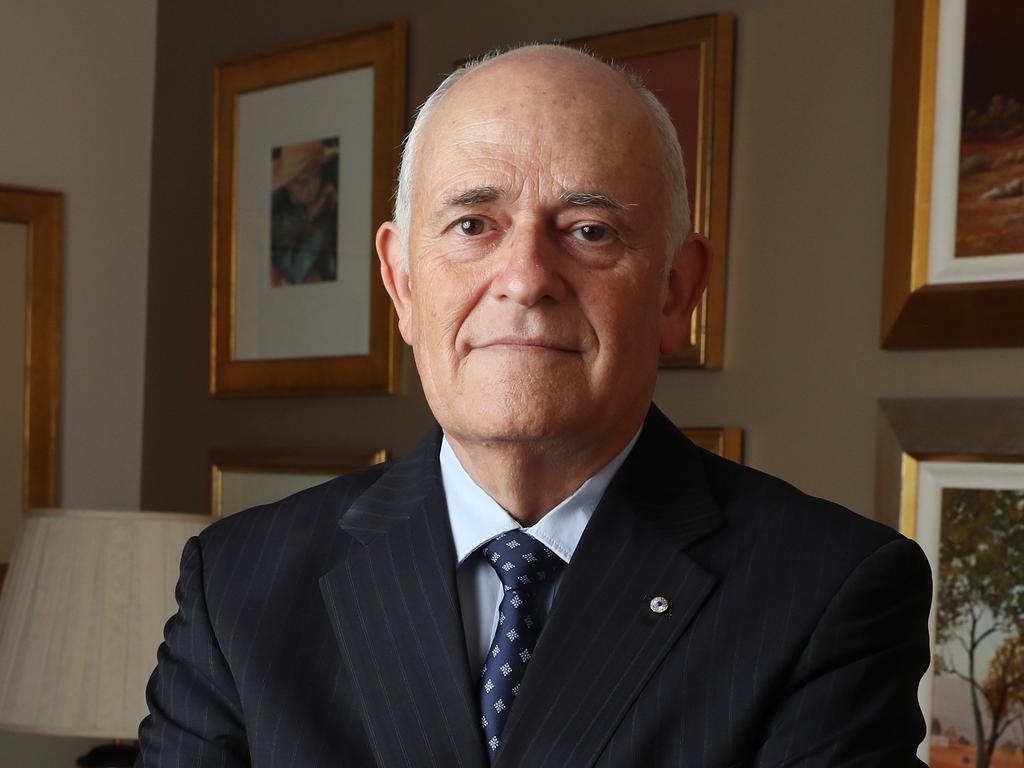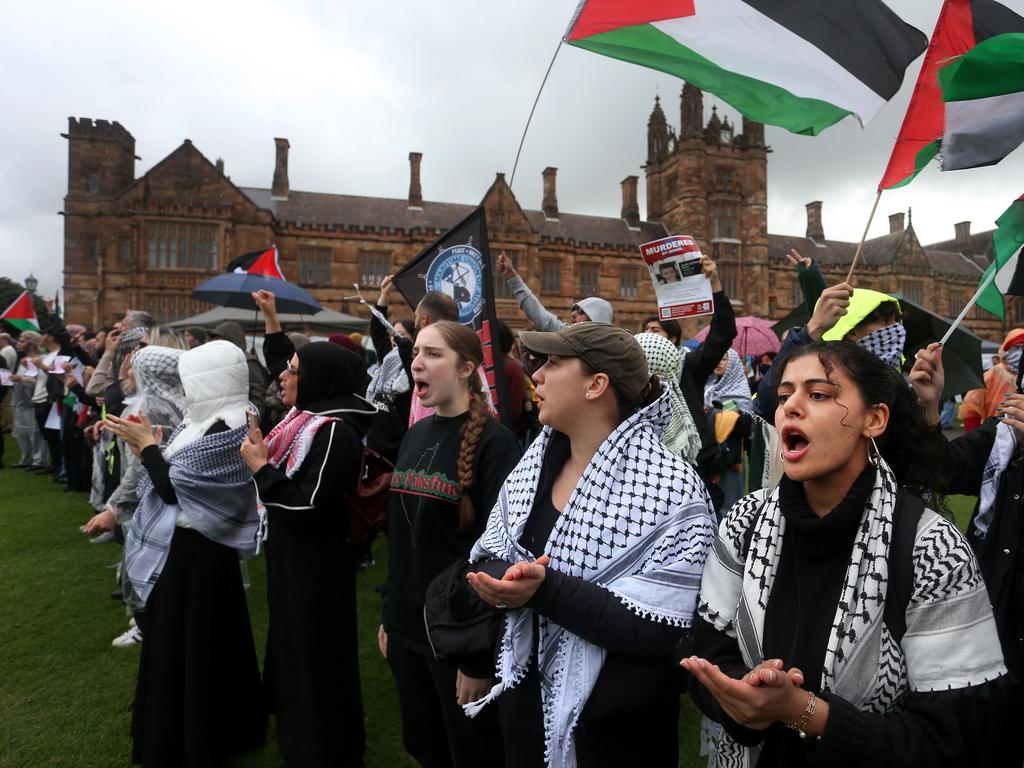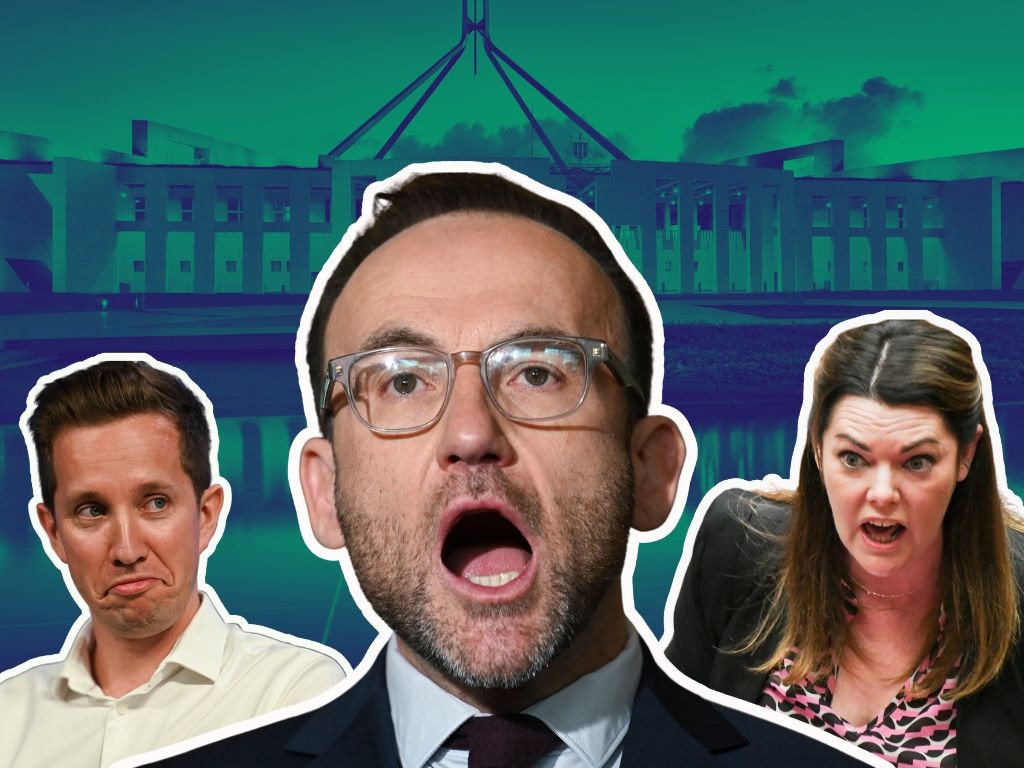Vice-chancellor must carry blame for uni’s anti-Semitic toxicity

I have a longstanding association with the University of Sydney as a previous student, staff member and parent of a current student. And I have watched the events of the past eight months with a mixture of sadness, indignation and horror.
I watched a camp being set up in front of the main quadrangle with a sense of unease. The encampment was occupied by pro-Palestinian groups – many of whom were not university students or staff.
In response, Scott has all but said Jewish students and staff must get used to feeling “uncomfortable” in the name of free speech. Each week there were more names added to the list of guest speakers at the encampment, including those from Hizb ut Tahrir. Groups of protesters have paraded through campus waving Taliban flags and shouting Allahu Akbar.
Staff were struggling to maintain the high standards of education due to the noise, disruption and protesters forcing their way into classrooms to make announcements. Many have resorted to working from home or taking leave.
Protesters invaded classrooms, disparaged faculty and threatened to photograph students. Those who resisted were labelled as “Zionists,” used as a word of condemnation. This hostile environment led some students to consider transferring to other universities and many staff looking for alternate employment.

I am one of those. I resigned in February and completed an exit survey answering the question about how likely I would be to recommend this university as a great place to work saying: “For someone Jewish, at this point in time, I would say absolutely do not work at USYD. The level of anti-Semitism is just too high, and it is not safe to identify as Jewish on campus right now.”
I requested an in-person meeting with human resources but was never contacted to arrange one. I know of at least three other staff who have left due to the toxic environment on campus.
In this agreement, Scott agreed to disclose the university’s defence and security-related activities, double their expenditure on scholarships for Palestinian scholars who are humanitarian visa holders (and others), and to convene a working group to undertake a review of the position of defence and security-related industries in their Investment Policy and Integrated Ethical and Social Governance framework. They committed to forming working groups that include students from SUMSA and “the encampment group”.
The decision to capitulate to a mob of protesters with alleged links to a terrorist organisation is outrageous. It is dangerous and sets a precedent that those who shout loudest will win. Further, this deal was struck behind closed doors. There was no attempt to investigate the views of current staff and students. Scott has eroded any trust he has left with academics, who were told that no further deal was on the table.

While students may have been genuine in calling for a ceasefire, they quickly moved on to overtly anti-Israel messaging using the word “Zionist” (or shortened just to Zio) as a derogatory term. They repeated the worst anti-Semitic tropes and shouted calls for Intifada. These encampments were infiltrated by a number of radicalised groups (including Hizb ut Tahrir) presenting their objectives to eradicate the State of Israel, advocating for sharia law and targeting Jewish staff and students on campus.
The external groups made daily calls to join the encampment. Scott did not stop this. He did not ban external organisations from speaking on campus. He did not attempt to ensure a safe working environment for staff and students. Instead, he met with the groups, he appeased these external agitators and came to a deal which undermines the university’s values of trust, accountability and diversity.
To paraphrase Einstein, it is time to shift your thinking or step aside so someone else can. Scott has created this wound and unless he can shift his thinking, he should not be the person to heal it.
Andy Smidt is an associate professor at the Southern Cross University’s faculty of health.
More Coverage
 I have a longstanding association with the University of Sydney as a previous student, staff member and parent of a current student.
I have a longstanding association with the University of Sydney as a previous student, staff member and parent of a current student.





Albert Einstein once said we cannot solve our problems with the same thinking that created them in the first place. Following a decision by the University of Sydney to capitulate to the demands of an angry mob, I think its vice-chancellor, Mark Scott, should consider Einstein’s advice.